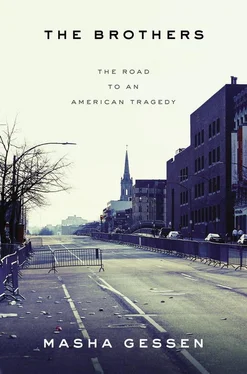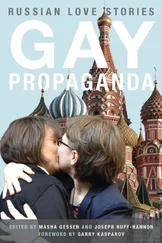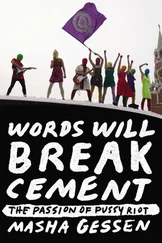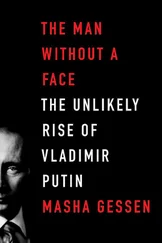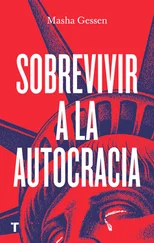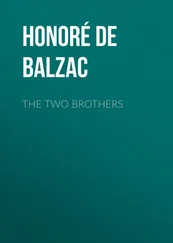For roughly the first year in the United States, an asylum applicant has no right to seek employment or to ask for public assistance. Anzor and Zubeidat were probably making rent with Ruslan’s help. Little by little, Anzor started getting under-the-table work fixing cars. He charged ten dollars an hour, and part of that went to one or another of the neighborhood garages in return for temporary work space. Zubeidat focused on her English: she made fast progress, unlike her husband, who would never really learn to speak this new language. Once she received her work authorization, in 2003, she followed Max Mazaev’s recommendation to look for work as a personal-care attendant. He connected her with the people who would become her first clients, and she would work for some of them for many years. It was unattractive but honorable work, the work Max Mazaev himself did for years before launching his adult-care center.
By mid-2003, the Tsarnaevs were granted asylum in the United States. Bella, Ailina, and Tamerlan were now entitled to visas. Maret traveled to Kazakhstan to collect the children and travel with them to Istanbul, where they stayed with friends while their U.S. papers were processed. She then brought them to Boston and left for Toronto, where she would finalize her divorce and embark on a career as an immigration lawyer.
• • •
A YEAR AND A HALFafter Zubeidat and Anzor arrived in the United States with Dzhokhar, the family was reunited and looked, finally, like it was on solid ground. The Tsarnaevs’ housing was guaranteed, thanks to their landlady and the federal government. Official asylee status meant that they could apply for public assistance, and they qualified for Section 8, a federal housing subsidy program for low-income families. Anzor and Zubeidat were both working—hard, low-paying, typical recent-immigrant work. The additional adults were gone from the house, and the kids were all in one place—Dzhokhar, who was now practically an American child, and the three disoriented newly arrived Chechen teenagers from Almaty.
Immigrant families often suffer from a sort of inversion: kids stop being kids, because the adults have lost their bearings. The kids do not turn into competent adults overnight; they go through a period of intense suffering and dislocation made all the more painful for being forced and unexpected. But at the other end of the pain, they locate their roles and settle into them, claiming their places in the new world.
Dzhokhar’s role was that of the sweet kid, the kid everyone loves. All the descriptions of him that have emerged from conversations with people who knew him, including people who cared for him deeply, are spectacular in their flatness. Those who watched him from a distance describe him as a social superstar. To those who thought they got closer, he was charming. Indeed, charm appears to be his sole distinguishing personality trait. Teachers thought he was bright but uninterested in thinking for himself. Dzhokhar was the kid who said the things that made others like him. Many of the articles that have been published since the Boston Marathon bombing have noted that Anzor and Zubeidat did not attend Dzhokhar’s wrestling matches, or his graduation from middle school—as though those absences signified notably grievous parental neglect. But Dzhokhar did not need his parents there and he probably did not want them there. Anzor and Zubeidat’s presence had a lot of weight and texture, entirely unsuitable for a boy making his way in the world as a sweet, weightless cloud. Joanna—American, sociable, quintessentially Cambridge—attended Dzhokhar’s graduation from middle school.
In 2003, Dzhokhar entered fifth grade, which was appropriate for his age. Ailina, at thirteen, and Bella, at fifteen, were older than most of their new seventh- and ninth-grade classmates. Tamerlan, entering tenth grade as he neared his seventeenth birthday, was a giant among sophomores—but this was his chance to prepare for college. Tamerlan and Bella started at the city’s only public high school, Cambridge Rindge and Latin. The school has an odd hybrid identity: it is a large urban high school with a pervading hippie ethos—the legacy of the many progressive teachers who have shaped it over the years. It maintains a distinct cult of itself. Its students seem, with a few exceptions, to hew to a powerful collective identity as residents of the special brilliant society of Cambridge and as students of an outstandingly diverse school. At the same time, Harvard and MIT professors, on whose presence so much of Cambridge pride is predicated, send their children to private schools. Cambridge Rindge and Latin’s genuine diversity comes courtesy of immigrant and poor populations: a third of the students come from low-income families, a third speak English as their second language, and only a third are white. For test scores, the school ranks at 213 out of the state’s 347 public high schools.
Joanna took the family to performances and movies and loaned them DVDs. Zubeidat suggested that The Chronicles of Narnia was an allegory about Chechnya. The landlady tutored all three teenagers in English; Ailina picked up the language as fast as she learned the habit of riding her bicycle to school, but Bella and Tamerlan, who would never shed their accents, were placed in English-as-a-second-language classes at Rindge. Tamerlan was also trying to teach himself English by reading Sherlock Holmes stories, which had been popularized in the former Soviet Union by excellent translations and a series of inspired short films. It may not have been as masochistic as Uncle Ruslan’s dictionary-based approach, but it was just as transparently self-defeating. Consider this single sentence from “The Adventure of the Speckled Band,” arguably the most famous of Conan Doyle’s stories among Russians: “‘Alas!’ replied our visitor, ‘the very horror of my situation lies in the fact that my fears are so vague, and my suspicions depend so entirely upon small points, which might seem trivial to another, that even he to whom of all others I have a right to look for help and advice looks upon all that I tell him about it as the fancies of a nervous woman.’”
• • •
THE BIG QUESTIONfacing the family was how to make Tamerlan succeed. One look at him and you knew he was destined for greatness—an impression confirmed by people outside the family. The physical grace of his large body, and his sharp features and large dark eyes, turned heads and messed with them. But he had lived in seven cities and attended an even greater number of schools. True, he could play keyboard and aspired to good grades, but with his late start in America, how was he to assert his potential? Anzor and Zubeidat did what immigrants do: they asked others for advice. They were lectured on the relative merits of different colleges, and learned that even the public ones carried a frightening price tag. They sorted through lists of possible professions. Would their golden boy be an engineer, a performer, an entrepreneur?
Khassan Baiev suggested martial arts. It was a terrible suggestion. If Almut Rochowanski, the legal scholar who founded the group for Chechen refugees, were to classify immigrants from the Caucasus, she just might divide them into two groups: those who push their male children into martial arts and those who do not. It is the second group that will succeed; the first group’s assumptions come from the old country. Back in the Caucasus, if you took at least one national title in wrestling, boxing, or any other fighting sport, you were set for life. In return for the honor you brought your region, you would get a gym of your own to run and, more often than not, a seat on one of the so-called legislative bodies. In the United States, a martial-arts career was generally a dead end, one that would leave a man cocky, injured, unemployed, and unassimilated by his late twenties.
Читать дальше
